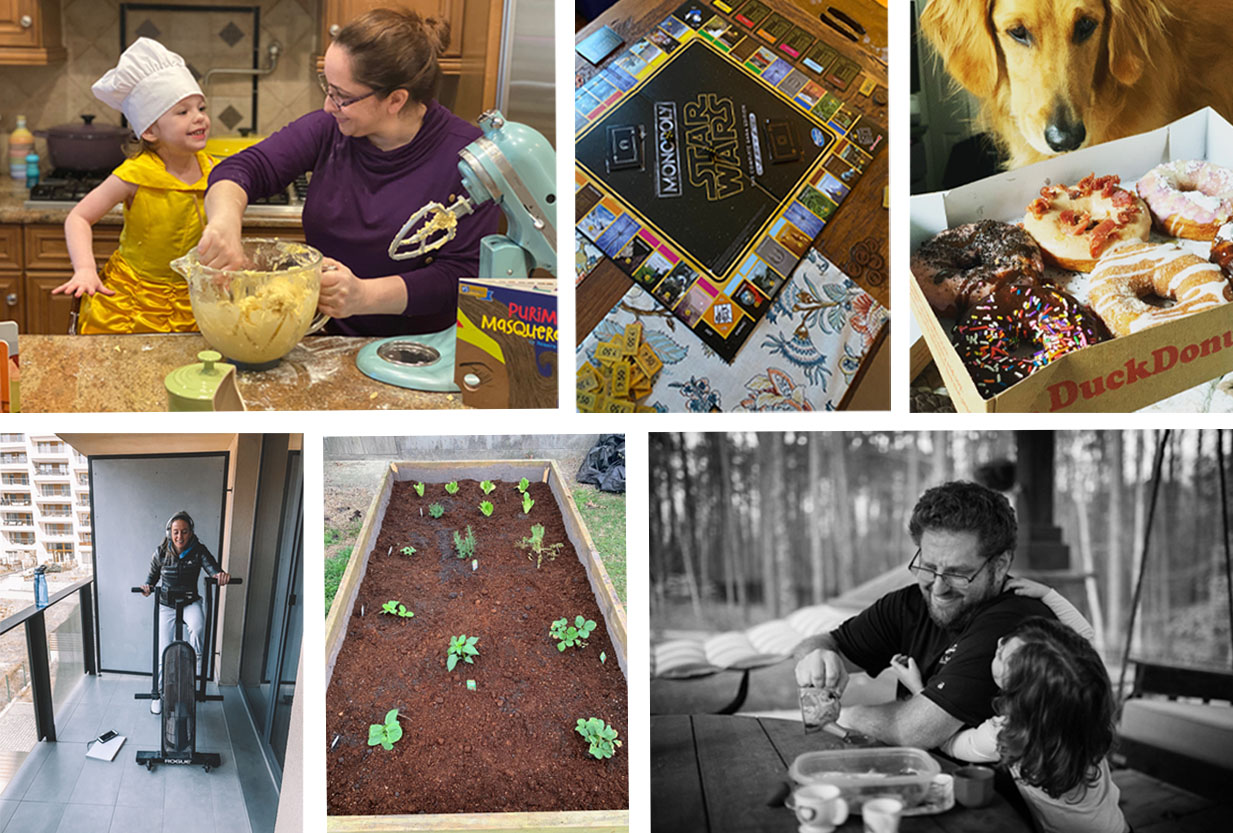In this tumultuous and uncertain time, it is no surprise that many are facing higher levels of stress in their daily lives. Stress can present itself in many different ways, including physical manifestations, decreased energy and immunity, disrupted sleep, and mental health issues. When considering today’s biggest contributor for stress, coronavirus tops the list.
Award-winning behavior science expert Dr. Kristen Lee emphasizes the importance of resilience, the “process of positive adaptation within the face of hardship.” As humans, we are already wired for resilience, “capable of navigating complexity, remaining agile, and demonstrating optimism.”
In a time where routines and habits are shifting, it is important to find effective ways to deal with stress and develop resilience. Maybe, the worst of times can bring out the best in us. Start by considering these 4 steps to manage stress during the coronavirus outbreak with tips from top speakers.
1. Recognize Stress
The first step to addressing how to cope with stress from the coronavirus outbreak is recognizing that any feelings you are having are valid and normal. The unpredictability of the coronavirus is unprecedented. The world as a whole is going through something we have never experienced before. Psychologists confirm that anxiety and stress is a natural response. Once you recognize stress, you can take more active steps in managing and lessening its harmful effects.
Stay Informed, With Boundaries
While people deal with anxiety and stress in different ways, constant inundation of news can be overwhelming. Dr. Heidi Hanna is the CEO of Synergy Brain Fitness, a company providing brain-based health and performance programs to individuals and organizations. Dr. Hanna, also the bestselling author of “Stressaholic” and “The SHARP Solution,” warns us to think about how much news and information we are taking in. She recommends developing a “healthy news diet,” in which we consider the quantity and quality of information we consume. She recommends setting healthy boundaries to limit spikes in anxiety due to facing uncertain or uncontrollable threats.
The World Health Organization’s (WHO) Director-General, Tedros Adhanom Ghebreyesus recommends getting information once or twice a day from reliable sources like the WHO, Center for Disease Control (CDC), and trusted local authorities. Hear more about Dr. Hanna’s tips to stay emotionally calm during stay at home orders and the cure for stress in her TEDxSDSU talk.
Identify the Underlying Cause
The coronavirus outbreak has uprooted our daily lives and is affecting people in all different ways. Identify which aspect is causing you the most stress personally. It might be health risks, economic impact, family issues, or mental health. You may be able to find actionable steps to address these concerns. Perhaps you direct your focus on improving your immune system by eating healthier, researching companies hiring during this time. Or, consider reaching out for professional help with therapy.
Working to address the biggest cause of stress in your life may also help relieve other sources of tension. In recognition of April as Stress Awareness Month, find additional tips for general ways to manage stress from mental health speakers.
Practice Self-Compassion
Once you are aware of the impact that the current situation may be having on you, practicing self-compassion is essential. It is important not to beat yourself up if you are not being as productive at home, or if you do not feel as though you are doing what you need to be doing. Understanding that this period is a transition and you are being forced to develop new routines, try not to be too hard on yourself. Recognize we are all doing the best we can in a confusing, new way to live.
Julie Reisler, life coach, author, and founder of “The You-est You” movement, helps people redesign their lives from the inside out, with emphasis on self-love and self-compassion. She reminds us the importance of looking inward during this time, and to appreciate what we do have. Check out her podcast episode, While At Home Get a PhD in YOU, for some insightful tips on how to practice self-compassion paired with helpful book recommendations.
2. Practice Self-Care
One of the prime ways to cope during this time is setting yourself up with good habits and self-care practices. Whether your goals include being more productive working from home, spending more quality time with family, eating cleaner, or managing uncertainty, self-care can help you be the best version of yourself.
Set a Routine
Setting a routine in this new normal can be valuable in providing structure to your days. Even though your life may be taking a different form right now, it is important to replicate the best habits you want to set for yourself. This is important in order to feel like this time is not lost, but rather, propelling you towards your goals. Right now, focusing on what we can control is essential.
Watch Laura Vanderkam’s TED talk on time management below for more tips on how to productively fill your days and listen to her new podcast “The New Corner Office with Laura Vanderkam” for daily weekday tips on strategies for thriving in working from home.
Meditate
Meditation, the act of bringing your full attention to your breath, can be an incredibly powerful tool in combating stress. When we focus on the present moment and let ourselves breathe, we become more aware of things we cannot control. Founder and Director of the Sansum Clinic’s Stress Management Program Jay Winner, talks us through “a mindful diaphragmatic breath” in his article on ways to manage COVID-19 stress. Mindful breathing relaxes us by stimulating the parasympathetic nervous system and giving us a mindful moment that can reduce stress:
“To begin, take a breath: Put your hand on your abdomen and as you inhale, feel your abdomen expand. Pay attention to one full inhalation and one full exhalation.”
You can try some of his free relaxation exercises here:
Develop a Healthier Lifestyle
Adopting or focusing more intently on a healthy lifestyle is important to boost the immune system. Whether through exercise, clean eating, and/or sleep, this can also help combat feelings of stress and anxiety. The team at On Target Living are dedicated to building healthy lifestyles and sustainable plans that work for you. In the family business of holistic health, speakers Chris Johnson, Matt Johnson, and Kristen Johnson Brogan can help inspire new patterns with life at home through their “Rest, Eat, Move” mantra. Check out their podcast on Immunity and Stress, resources on food and wellness, or follow along to this relaxing yoga flow to get your endorphins flowing.
Many companies are stepping up to help you establish your exercise routine by offering their services for free. Find free workouts on YouTube, the Down Dog apps (including yoga, barre, and HIIT, until May 1), Peloton (at-home workouts, 90-day free trial), and the Nike Training Club, among others.
Rediscover and Find New Hobbies
Rather than focusing on the negative, try to view the current situation as an opportunity. What have you always wanted to do, but never had the time? Is there a recipe you have been wanting to make? What hobbies do you want to experiment with, just for the heck of it? Maybe try a virtual museum tour, watch a live stream of wild animals, or instantly borrow one of thousands of e-books free through public libraries with Libby.
Here is how some members of the team at AAE have been filling their free time.

Express Optimism & Gratitude
We will surely be changed by this current scenario. It is important, however, to remember that things will go back to normal in time. In conversation with motivational speaker, John O’Leary, Harvard Professor and Positive Psychology Expert Shawn Achor emphasized the need for optimism, gratitude and social connection right now. He recommended three tips to increase optimism, happiness, and social connectivity:
- Each day, identify 3 new things that happened in the last 24 hours that you’re grateful for.
- When anything positive happens, jot it down on a piece of paper. Throw them in a bowl and read back through them at a later date.
- Send a positive message, email or text to someone. This will create a ripple effect and a reciprocal loop.
By practicing gratitude and optimism, we will be able to feel happier in our current situation.
3. Get Connected
Although we may be socially distant, we must not become socially disconnected. Kati Morton, YouTube content creator and licensed marriage and family therapist with a Master’s in Clinical Psychology, says the main antidote for the stress response is social interaction. By engaging with people who are close to us and feel safe, we are able to calm our system down. See more about how to deal with anxiety over the coronavirus in her YouTube video below.
Video Calling
Zoom, a group video conference application, has surged in popularity during the uptake of coronavirus cases, both for remote work meetings as well as informal meetings. The app Houseparty allows up to eight people per video call suited with built-in games like “Heads Up!” and trivia. Many companies have adopted virtual happy hours or makeshift trivia nights as a way for employees to connect.
Virtual Gaming
While social distancing, we may be struggling with filling our free time in a connected way. Luckily, classic and new games alike have adjusted to this new normal. Play Cards Against Humanity and Uno online with your friends, or challenge them to some rounds of Scattergories through their app. Or if you prefer to indulge in a movie night, watch movies with your friends with Netflix Party!
4. Support Your Community
Beyond following the CDC’s guidelines for how to protect yourself from the coronavirus and doing your part in following local safety measures, looking for ways to help those in need can benefit many in need and help you feel better too!
- Help support local restaurants by ordering takeout and buying gift cards or merchandise.
- Shop online, especially from locally owned businesses.
- If you are healthy, help the American Red Cross and donate blood at your local drive.
- Donate to the COVID-19 Solidarity Response Fund for WHO, or other causes related to the pandemic.
We hope these tips help you to manage stress and cope with the coronavirus outbreak. For more information and guidance for your group or business, check out these leading speakers on Stress Management available for live and virtual events.



